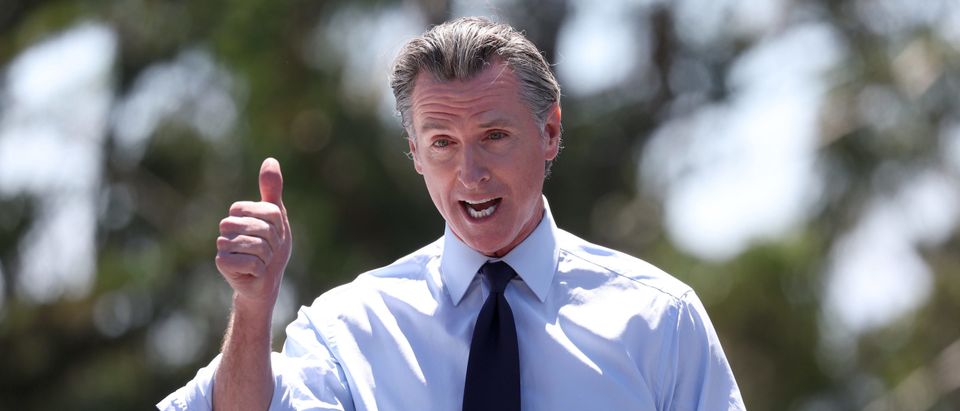It’s become routine. A problem, either real or imagined, arises, and California policymakers rush in to fix it with their legislative repair kit. Yet their solutions make the problem worse, create new issues, or both.
That California has painfully high retail gasoline prices is not in dispute. They are in fact the highest in the country, almost $1.50 higher per gallon than the national average. Of course that’s old news — California gas prices have exceeded the national average for decades.
But this time, our political leaders are telling us they’re going to do something about it. “Trust us,” they say, “we know what we’re doing.”
Do they?
The latest round of “doing something about it” was kicked off last fall by Gov. Gavin Newsom, who tweeted that “greedy oil companies are ripping you off,” and called “for a new tax on these corrupt oil companies to put money back in your pocket.” Newsom called for a special inquisition — make that special session — in December to pass anti-gouging legislation. He eventually got a bill on his desk, which he recently signed.
Senate Bill X1 2 differs a bit from the policy initially wanted. Last year he was talking about punishing oil companies with a new “windfall tax.”
“If they won’t lower their prices we will do it for them,” he said.
The bill that was passed creates “a new, independent watchdog within the California Energy Commission” that’s “charged with monitoring” daily the state’s petroleum market, according to the governor’s office. This “division would have access to new information required to be reported by refiners, subpoena power to compel production of other data and records that could reveal patterns of misconduct or price manipulation, and authority to refer violations of law to the Attorney General for prosecution.”
The California Energy Commission also has the authority “to set a price gouging penalty.”
Does Sacramento really believe that this will lower retail prices?
Seems so. Sen. Nancy Skinner, the Berkeley Democrat who authored the bill, said “it is our role to protect our residents from any practices of any business that may harm them.” Newsom, who’s surely feeling triumphant, promised “we’re going to hold Big Oil accountable for ripping off Californians at the pump” and believes lawmakers reached “a major milestone in our efforts to drive the oil industry out of the shadows and ensure they play by the rules….We’re getting the job done for California families.”
No matter the promises made from the halls of Golden State governance, the real world has the final say, and it tells us a regulated industry is a costlier industry, and the greater the regulation, the greater the prices customers will pay at the end. Piling more guidelines and what amounts to a surveillance program on an already highly regulated, high-taxed business reads more like a plan to raise prices than lower them.
In addition to possible penalties for failing to do business as the government demands, oil companies also face additional regulatory compliance costs. Refiners and nonrefiners “that consummate spot market transactions” are “to submit a daily report” to the state that includes “information for each transaction occurring in the preceding day.” Refiners are further required “to report maintenance activities, both planned and unplanned.” Resources that could otherwise be committed to increasing supplies or improving operations, both critical to reducing retail prices, are now to be spent on paperwork. The chilly breeze of Sacramento regulation takes another victim.
Oil companies are already planning their exits from California. Drilling new wells is not yet prohibited, but it’s only a matter of time before there’s a statewide ban. Some cities are outlawing new gas stations, and in 12 years, no one will be able to buy a new automobile that runs on gasoline, leaving the industry with a customer base that’s a fading remnant of what it is today. Putting it through yet another regulatory squeeze is only going to speed up the departure.
But then maybe that’s the objective. It’s no secret that this state is at war with cars, especially those that combust fuels made from hydrocarbons. SB X1 2 might be an effective back-door banishment of oil companies, whose exit would leave millions of Californians with no choice except to buy government-approved electric vehicles, aggravating another problem that was created by lawmakers.
Kerry Jackson is a fellow with the Center for California Reform at the Pacific Research Institute.
The views and opinions expressed in this commentary are those of the author and do not reflect the official position of the Daily Caller.


